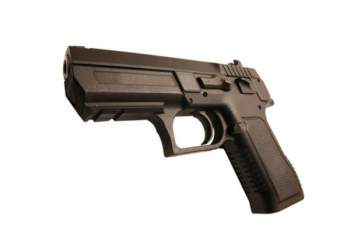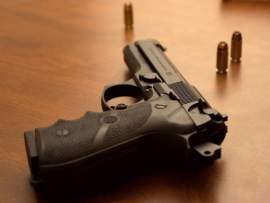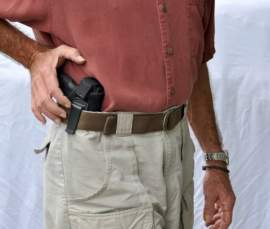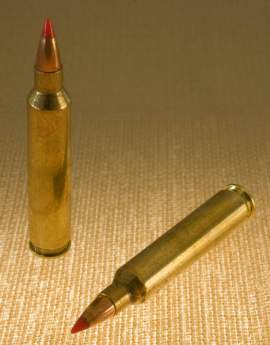
California Gun Laws

California gun laws are among the most complex that exist in the country today. Like many other states in the United States, California gun laws do not require permits to purchase firearms, or the registration of rifles and shotguns.
However, California gun law does require the registration of handguns and firearms that are considered "assault weapons." The various law enforcement agencies in California record every single purchase of firearms that fall in to these two categories. The registration procedure also includes all new California residents as well, for they are only given a total of 60 days to register the necessary firearms upon moving to the state."
This is an obvious attempt to curtail some of the firearm activity in urban areas--specifically handguns and "assault weapons"--by various gang-related individuals. The mandatory registration for these types of firearms will make it much easier to locate the owner of a gun or weapon in the case of a criminal investigation.
The purchase of firearms by California gun laws also seem to present more stringent guidelines and regulations than other states. The sale of all firearms, including private sales, must be processed through a licensed and certified firearms dealer of California. An actual application must be filled for the sale of a fire arm with an authorized dealer; this also extends to any transfers of ownership, loans, and rentals as well. An application contains information regarding the purchaser as well as the firearm.
Purchasing a firearm in California is not a simple process. First, any individual seeking to purchase a firearm within the state of California must provide appropriate identification; either a driver's license or state-issued I.D. card, and another form providing proof of residence in the state. People who are not residents of the state of California will not be able to purchase firearms within its borders. A Handgun Safety Certificate must also be obtained in order to purchase a firearm, specifically handguns, which is given only after successfully passing a written test.
The written test is administered by certified instructors of the California Department of Justice, and is valid for five years. Furthermore, a thumb-print must also be provided at the time of submitting an application. The entire application is then processed--at a fee provided by the buyer--by the California Department of Justice, which conducts a thorough and rigorous background check for every prospective firearms purchaser. There is an imposed ten-day waiting period for all firearms purchases. If the purchase is approved, the dealer must register the actual transfer of ownership of the firearm and keep it on record.
The purchaser then has a limit of 30 days to pick up the weapon from the dealer. If the weapon is not picked up by the buyer within that time frame, the entire purchasing process must be repeated all over. A firearm purchase is strictly limited to one weapon. A person seeking to buy multiple firearms can not apply for a another purchase within thirty-days of a previous firearm purchase. Also, a person can not accept delivery of another weapon within thirty-days of having purchased another firearm.
The regulations regarding the possession of firearms by California gun laws are similar to those of other states. A convicted felon, people with a history of mental illness, drug addiction, and/or mental instability are all ineligible to posses fire arms in California. The restriction is also expanded to include individuals with misdemeanor charges of a violent or forceful nature. Minors that have committed crimes that, if tried as adults, would have been felonies, or pertain to a violent nature are not allowed to possess any firearms until they reach the age of thirty.
No minor under the age of sixteen may possess a handgun, unless under the supervision and accompaniment of a parent or legal guardian while participating in activities that involve firearms; expressed written consent is also acceptable. This restriction also includes any kind of ammunition as well, not just firearms.
Under California gun laws, the carrying of loaded firearms in public is strictly prohibited. The only exceptions are, if the person is shooting at a range or hunting within the premises of a shooting club, is within the confines of his private property or place of business, is within reasonable concern for his/her life, and if a lawful arrest is occurring.
The carrying of concealed weapons is allowed under law, as long as the individual has a permit. This also includes handguns in holsters that are easily visible. When a firearm is located in a vehicle, it is permitted to be only in the trunk or in a secured and locked case or container to be considered as "unconcealed." Guns placed under seats or in a glove compartment, under California gun laws, in considered to be "concealed."
"Assault weapons" also have their own special regulations and restrictions under California gun law. It is strictly illegal to sale or transfer "assault weapons"--or a .50 caliber BMG rifle--in any way shape or form.
According to California gun laws, an "assault weapon" is defined as any firearm listed in the original provision of the Roberti Roos assault weapon law, any weapon in the AK and AR-15 series or other similar series, and lastly, any weapon that is classified as an assault weapon by the Department of Justice.
It is not illegal to possess an assault weapon in California, but it must be appropriately registered with the state. At this point in time, registration for these types of weapons has ended in California, and individuals in possession of unregistered assault weapons must relinquish them over to the authorities.
To legally dispose of a assault weapon, a person must sell it to a dealer certified to deal with that specific type of firearm, give it to the proper authorities, take it out of the state, or completely destroy the weapon.
Assault weapons may only be possessed at the registered owner's private residence, private property, or place of business. Specialized shooting clubs may also possess assault weapons, given the proper documentation. Also, in California, it is illegal to possess more than ten rounds of ammunition for any kind of assault weapon.
NEXT: Colorado Gun Laws





















